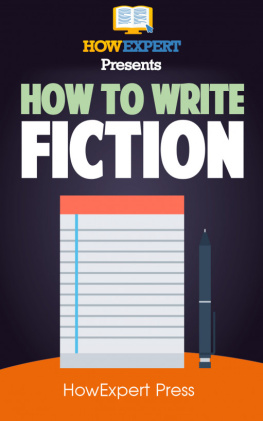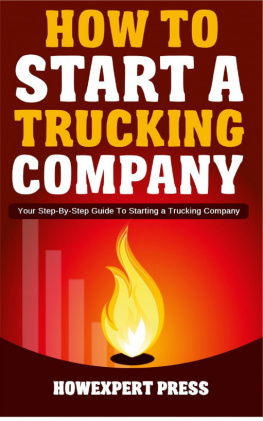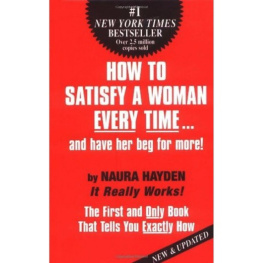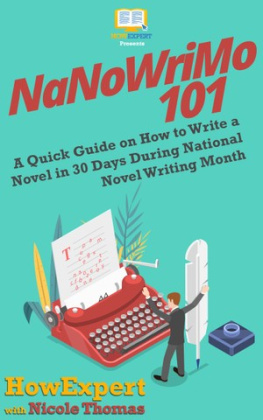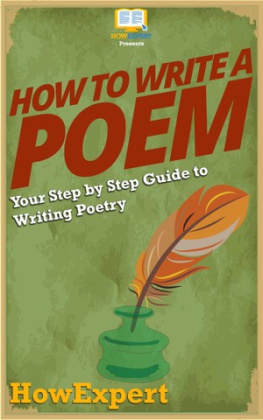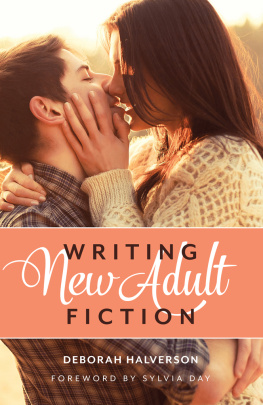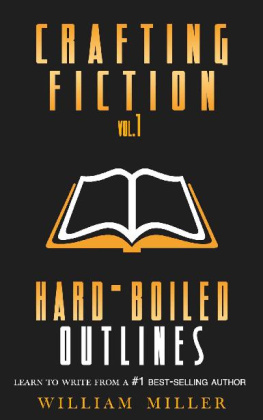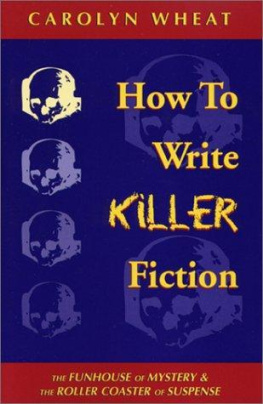How To WriteFiction Novel
Your Step By Step Guide To Writing FictionNovel
*****
HowExpertPress
SmashwordsEdition
*****
Copyright 2011 www.HowExpert.com
Discover OtherTitles by www.HowExpert.com at Smashwords.com :
http://www.smashwords.com/profile/view/howexpert
LicenseNotes
This ebook islicensed for your personal enjoyment only. This ebook may not bere-sold or given away to other people. If you would like to sharethis book with another person, please purchase an additional copyfor each person you share it with. If you're reading this book anddid not purchase it, or it was not purchased for your use only,then you should return to Smashwords.com and purchase your own copy. Thank you for respecting the author'swork.
* * * * *
Table of Contents
RecommendedResources
CHAPTER 1 :PLANNING TO WRITE
Look For AComfortable Place To Write.
WritingTools
Mind SettingFor Creative Writing
IntensifyingYour Idea
CHAPTER 2 :THE ESSENTIALS IN CREATING FICTION BOOK
How To Come UpWith A Theme
Kinds ofCharacters
How To DevelopA Plot Line
CHAPTER 3 :THE WRITING PROCESS
How To ConductA Research
How ToOrganize Topics
How To Make ADraft
How To Do TheEditing
CHAPTER 4 : HOW TO PUBLISH YOUR NOVEL
Types ofPublishing
OnlinePublishing And Author Rights
InternetPublishing Necessities
ElectronicPublishing Over Hard Copy Publishing
Types ofE-book Format
How To Find AnAgent
How To Find APublisher
ElectronicPublishing over Hardcopy Publishing
Marketing yourE-Book
If youre a writer, you willneed a space or an unrestricted area where you can writecomfortably and where your materials will be safe and secure fromany potential disruption.
A work space withgreat view can be a major hindrance to some writers. For some,anything eye catching can break your focus or disrupt yourconcentration.
It isimperative to maintain focus when writing and even more so whenwriting to meet deadlines. Conversely, pleasing surroundings canalso serve to inspire and encourage your creative process.
Beautifulscenery or a great view of the sun rising over your citys skylinemay be just what you need to fuel your imaginative sustenance whichin turn will allow you to write at your finest.
Your writing spaceshould go hand in hand with your comfort level. You must be wellsuited in your work zone first before you start your task.
You shouldconsider working in a relaxed and uncluttered environment, and onewhere you have complete control of your immediate surroundings.
Take intoconsideration where you want your work area and then before youactually get started, try sitting in it for a few minutes.
Is the chairtoo hard? Is it a high traffic area where people are passing by toofrequently? Is your writing space close to your reference material?Do you feel a level of anxiety or discomfort?
If so you maywant to continue your search for the best location. Amazingly, poorlocations can be made better with the simplest of everyday items. Acold barren desktop for example can become a pleasant workingenvironment when you add a potted plant or some flowers; or workingin dim light with soothing music may be your thing.
Experimentwith different things and eventually you will find the rightcombination for creating a perfect working atmosphere.
A writer should have thefollowing in order to accomplish the task:
REFERENCE MATERIALS
You may need amultitude of books, depending on the type of writing you will bedoing.
Some examplesmay include:
Thesaurus
Dictionary
Encyclopedia
Atlas
Triviabooks
Quotationbooks
Grammarguides
Internet
You can build apersonal library for your reference material and in doing so youwill save a lot of time when searching.
You can try thefollowing to build your collection inexpensively:
Look for a Bookexchange programs
Go to a garageand yard sales
Purchase usedbooks on-line
Visit Booksales and thrift book stores
Look forLibraries that may be selling old books
Download freegrammar and spelling correction programs off the internet.
Nowadays, a writer hasthree options available; a personal computer, a typewriter, orpaper and pens. Just choose what you think best fits your writingstyle. Remember its about being comfortable and secure in yourwriting environment.
You may alsowant to invest in a filing cabinet to keep your work and notes.Some writers use voice recorders these days for taking notes.
Moreover, somewriters almost exclusively use a small handheld mp3 recorder tomake rough outlines for their stories. This can work well for somebut others may find it to be aggravating when you lose your placeon the recording.
Carrying arecorder with you everywhere you go can be the best thing to do.You will never be left trying to remember all the details of apassing thought you may have had hours before.
For thisreason a small handheld, preferably digital recorder can be apriceless commodity.
Once youve got your writingspace and tools set up, its time to get down to the business ofwriting your project. At this point you will most likely bebrainstorming and exploring what subject and topics you want towrite about.
Writingartistically isnt easy, make no bones about it. It takes guts anddetermination. It takes courage to start something you may neverhave done before and strength to see it through to the end. Yourmind may always be overshadowed by what others may think of yourwriting style, whether or not your grammar is perfect or if youremaking yourself clear to the reader.
But remember,everyone has uncertainties about doing it, from New York Timesbest-sellers to your everyday beginners. The question is: How dothey conquer these fears? The answer: They dont. The key is tosimply sit down and write. Write everything you feel, and writeeverything you think.
Your naggingself doubt in regards to other people appreciating your work isabundantly common in the writing business.But writing is an art,you have to naturally go along with what you feel when it comes towriting. How you feel will reflect upon your finished product.
You shouldntstem the flow of personal creativity when it comes to creativewriting.
After you havecompleted the basic outline of your story, go back and if somethingis unclear to you, chances are it will probably be unclear tosomeone else as well; so this is the time to fix it.
Like any artform, writing requires a certain level of inspiration. Suchinspirations will most likely NOT be found sitting around yourhouse. The imagination only appears limitless, but rest assuredeven the human mind can benefit from a refreshing walk in thepark.
Inspiration isthe driving force behind creativity in general. You must constantlyfeed inspiration by having new experiences, preferably every day.So get out and experience life, and in doing so you will find yourcreativity dramatically increase.
Now that yourimagination has been properly nourished, its time to expand whatyou have so far. You need to take a simple idea and develop itfurther; its as simple as that.
Consider thefollowing questions when expanding an idea. Will your idea be ashort story, or will it be a novel? Will you be writing a poem? Whois your target audience? Will in the story be told as a firstperson narrative?
Once youveanswered these questions, then youre ready to write.
Writing has several goals, butits good to have only one purpose in writing.
Your goalmight be to share a story that will inspire readers, or to provokethought.

